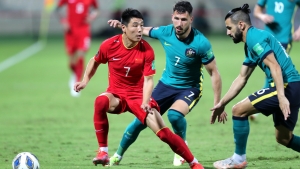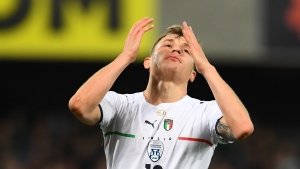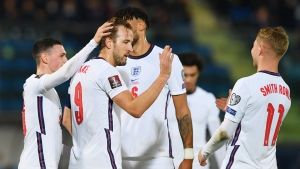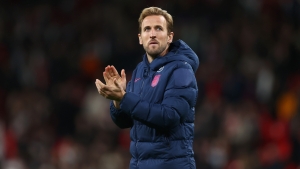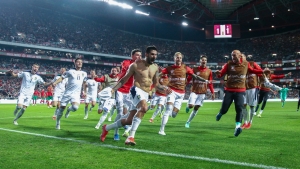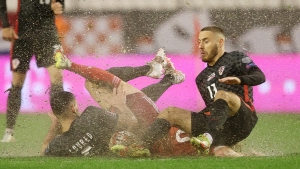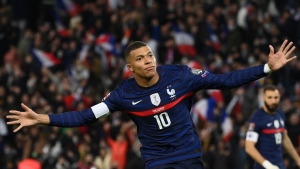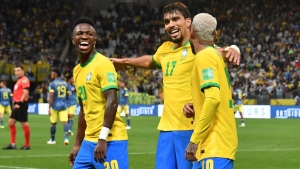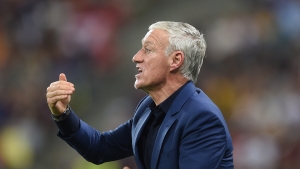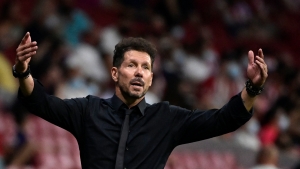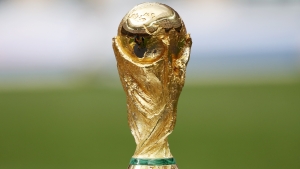European champions Italy missed out on automatic qualification for the 2022 World Cup as they were held to a 0-0 draw by Northern Ireland.
Jorginho's last-gasp penalty miss against Switzerland last time out meant Italy headed into their final Group C game at Windsor Park level on points with the Swiss, ahead only on goal difference.
And while Switzerland managed to beat Bulgaria on Monday, Italy were frustrated by Ian Baraclough's side in Belfast.
A star of the Euro 2020 success, Federico Chiesa went closest to breaking the deadlock for Roberto Mancini's side as Italy – who failed to qualify for the 2018 World Cup – had to settle for a place in the play-offs.
Lorenzo Insigne's sublime pass put Giovanni Di Lorenzo through inside the opening 10 minutes, though from a tight angle, the full-back's effort was caught between a cross and a shot, with Bailey Peacock-Farrell able to parry away.
That set the tone for Italy, who had plenty of possession and territory but lacked a cutting edge. Matters would have been made more difficult early in the second half if not for Gianluigi Donnarumma.
With Insigne having dragged wide from a presentable chance, Northern Ireland almost took the lead at the other end – Donnarumma making a superb stop to deny George Saville.
Peacock-Farrell judged a difficult Domenico Berardi free-kick, though was beaten by Chiesa's curling attempt soon after. Unfortunately for Italy, it sailed the wrong side of the upright.
Despite Mancini throwing on the cavalry, Chiesa's chance was the closest Italy went, and they were fortunate Leonardo Bonucci was on hand to clear Conor Washington's late shot off the line.
The Azzurri now face two play-off games in March to try and qualify for the tournament in Qatar.
What does it mean? Back down to Earth
Italy’s Euro 2020 euphoria will have been replaced by a real concern history could be set to repeat itself. Since their penalty shoot-out triumph over England at Wembley, Mancini’s side have won just two of their seven fixtures, with only one of those coming in qualifying.
The Azzurri lost to Sweden in the play-offs for Russia 2018. This time, they will have to win two games to progress (a semi-final and a final). They will go into pot two in the draw, alongside the Czech Republic, Scotland, Sweden, Wales and the runners-up from Groups D, G and I.
Baraclough’s brilliant defence
Northern Ireland boss Baraclough had a tough ask taking over from Michael O'Neill, but he has retained the resilience and spirit within the squad.
They were out of the qualification picture before Monday’s game, but have gone the entire campaign without conceding a goal at home. Indeed, they have now kept a clean sheet in their past five home qualifiers. It should have been an even more jubilant night, but Washington fluffed his lines late on.
Toothless Italy fall short
Italy have not conceded a single goal in any of their past nine away games in all competitions, but it was at the other end they fell short.
While Switzerland cruised to a 4-0 victory, Mancini must find a way to get his attacking talents firing as they did in the Euros. Only against Sweden (eight), have Italy played more away matches without winning than in Northern Ireland - drawing three and losing once in four games.
What's next?
Neither team will be in action until March, with Italy waiting to see who they will face in the play-offs.





















